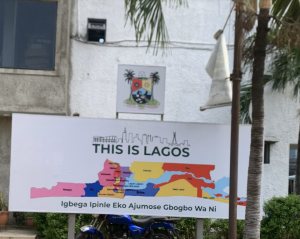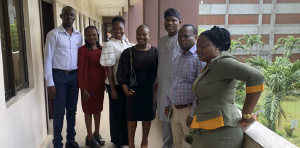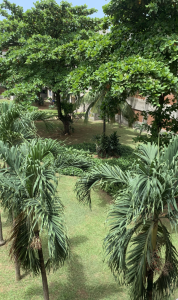In a bid to strengthen environmental sustainability efforts, TEMI Foundation held a strategic meeting with the Ministry of Environment to explore areas of collaboration, particularly in the areas of Water, Sanitation, and Hygiene (WASH). This engagement aimed to drive impactful interventions in underserved communities, with a focus on the Makoko Clean-Up Project and broader environmental initiatives.

Advancing WASH and Environmental Sustainability
The discussion centred around the role of the Ministry in supporting community-driven clean-up initiatives and promoting hygiene awareness. TEMI Foundation emphasized its commitment to WASH programs and the need for structured support to facilitate waste management, improve sanitation, and promote hygiene education in local communities.
Departments and Collaborative Opportunities
The Ministry of Environment outlined the different departments involved in sanitation and water management, highlighting their contributions to environmental sustainability. These include:
🌱 Sanitation Department – Overseeing hygiene and cleanliness initiatives.
💧 Water Resources Management – Regulating water access and conservation.
🚮 Waste Water Management – Ensuring proper waste disposal systems.
🏛️ Water Regulatory Commission – Supervising water quality and infrastructure.
Additionally, the Ministry introduced COLEG (Coalition of Lagos Environmental Groups), a platform where NGOs collaborate with the government to address environmental issues. TEMI Foundation was encouraged to outline specific areas of collaboration to align with the Ministry’s annual calendar.

Key Environmental Awareness Programs
The Ministry highlighted various annual environmental awareness events, including:
🌍 World Environment Day – Focused on sustainable solutions for plastic pollution.
🚽 World Toilet Day – Advocating for better sanitation and hygiene practices.
🚫 Plastic-Free Day – Promoting waste reduction and recycling efforts.
🏆 Recognition and Award Programs – Celebrating organizations driving environmental change.
In addition, the Environmental Education Unit was introduced as a key department responsible for raising awareness about recycling and sustainability in schools.

Next Steps and Future Collaboration
The meeting concluded with a call for TEMI Foundation to define specific projects and engagement areas, ensuring that efforts align with the Ministry’s policies and initiatives. This partnership represents a crucial step towards creating long-term solutions for water and sanitation challenges, promoting clean environments, and fostering community-led sustainability efforts.
TEMI Foundation remains committed to empowering communities through advocacy, action, and awareness. With continued collaboration, these efforts will contribute to a cleaner, healthier, and more sustainable future.
